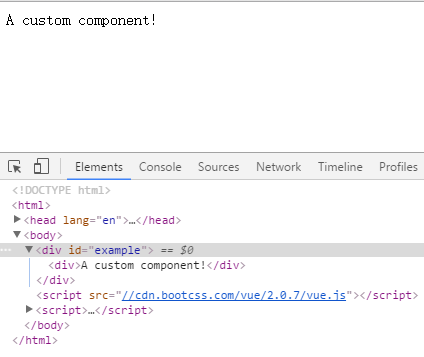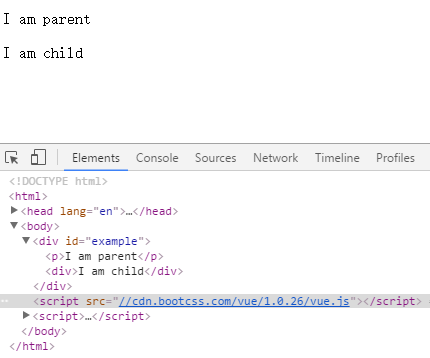首页 > 代码库 > Vue.js 组件 component
Vue.js 组件 component
什么是组件?
组件(component)是Vue.js最强大的功能之一,核心目标是扩展HTML元素,封装可重用的代码。我们可以把组件代码按照template、style、script的拆分方式,放置到对应的 .vue 文件中。
Vue.js的组件可以理解为预先定义好行为的ViewModel类,一个组件可以预定义很多选项,但最核心的是以下几个:
模板(template) -- 模板声明了数据和最终展现给用户的DOM之间的映射关系
初始数据(data) -- 一个组件的初始数据状态。对于可复用的组件来说,通常是私有的状态
接受的外部参数(props) -- 组件之间通过参数来进行数据的传递和共享。参数默认是单向绑定(由上而下),但也可以显示声明为双向绑定
方法(methods) -- 对数据的改动操作一般都在组件的方法内进行,可以通过v-on指令将用户输入事件和组件方法进行绑定
生命周期钩子函数(lifecycle hooks) -- 一个组件会触发多个生命周期钩子函数,比如created、attached、destroyed等。在这些钩子函数中,我们可以封装一些自定义的逻辑。和传统的MVC相比,这可以理解为Controller的逻辑分散到了这些钩子函数中
注册
1、全局注册 Vue.component(tagName, options)
Vue.component(‘my-component‘, {
// 选项
})如上所示,第一个参数是注册组件的名称(即在HTML中我们可以这样使用组件:<didi-component></didi-component>);第二个参数是组件的构造函数,它可以是Function,也可以是Object
Function -- 第二个参数可以是用Vue.extend()创建的一个组件构造器
var myComponent = Vue.extend({
//选项...
})Object -- 第二个参数传入选项对象,Vue.js在背后自动调用Vue.extend()
//在一个步骤中扩展与注册
Vue.component(‘didi-component‘,{
template:‘<div>A custom component!</div>‘
})组件在注册之后,便可以在父实例的模块中以自定义元素 <my-component></my-component> 的形式使用。要确保在初始化根实例 之前 注册了组件:
<div id="example">
<my-component></my-component>
</div>
<script src="http://cdn.bootcss.com/vue/2.0.7/vue.js"></script>
<script>
//注册
Vue.component(‘my-component‘,{
template:‘<div>A custom component!</div>‘
})
//创建根实例
new Vue({
el:‘#example‘
})
</script>
2、局部注册
不需要每个组件都全局注册,可以让组件只能用在其它组件内。我们可以用实例选项components注册
<div id="example">
<my-component></my-component>
</div>
<!-- 我在使用Vue2.0版本时报错-->
<script src="http://cdn.bootcss.com/vue/1.0.26/vue.js"></script>
<script>
var Child = {
template:‘<div>I am child</div>‘
};
var Parent = {
template:‘<p>I am parent</p>‘+‘<child></child>‘,
components:{
//<my-component>只能用在父组件模板内
‘child‘:Child
}
};
new Vue({
el:‘#example‘,
components:{
‘my-component‘: Parent
}
})
</script>
DOM模板解析说明
当使用 DOM 作为模版时(例如,将 el 选项挂载到一个已存在的元素上), 你会受到 HTML 的一些限制,因为 Vue 只有在浏览器解析和标准化 HTML 后才能获取模版内容。尤其像这些元素 <ul> , <ol>, <table> , <select> 限制了能被它包裹的元素, <option> 只能出现在其它元素内部。
在自定义组件中使用这些受限制的元素时会导致一些问题,例如:
<table> <my-row>...</my-row> </table>
自定义组件 <my-row> 被认为是无效的内容,因此在渲染的时候会导致错误。变通的方案是使用特殊的 is 属性:
<table> <tr is="my-row"></tr> </table>
应当注意,如果您使用来自以下来源之一的字符串模板,这些限制将不适用:
<script type="text/x-template">
JavaScript内联模版字符串
.vue 组件
因此,有必要的话请使用字符串模版。
Vue.js 组件 component
